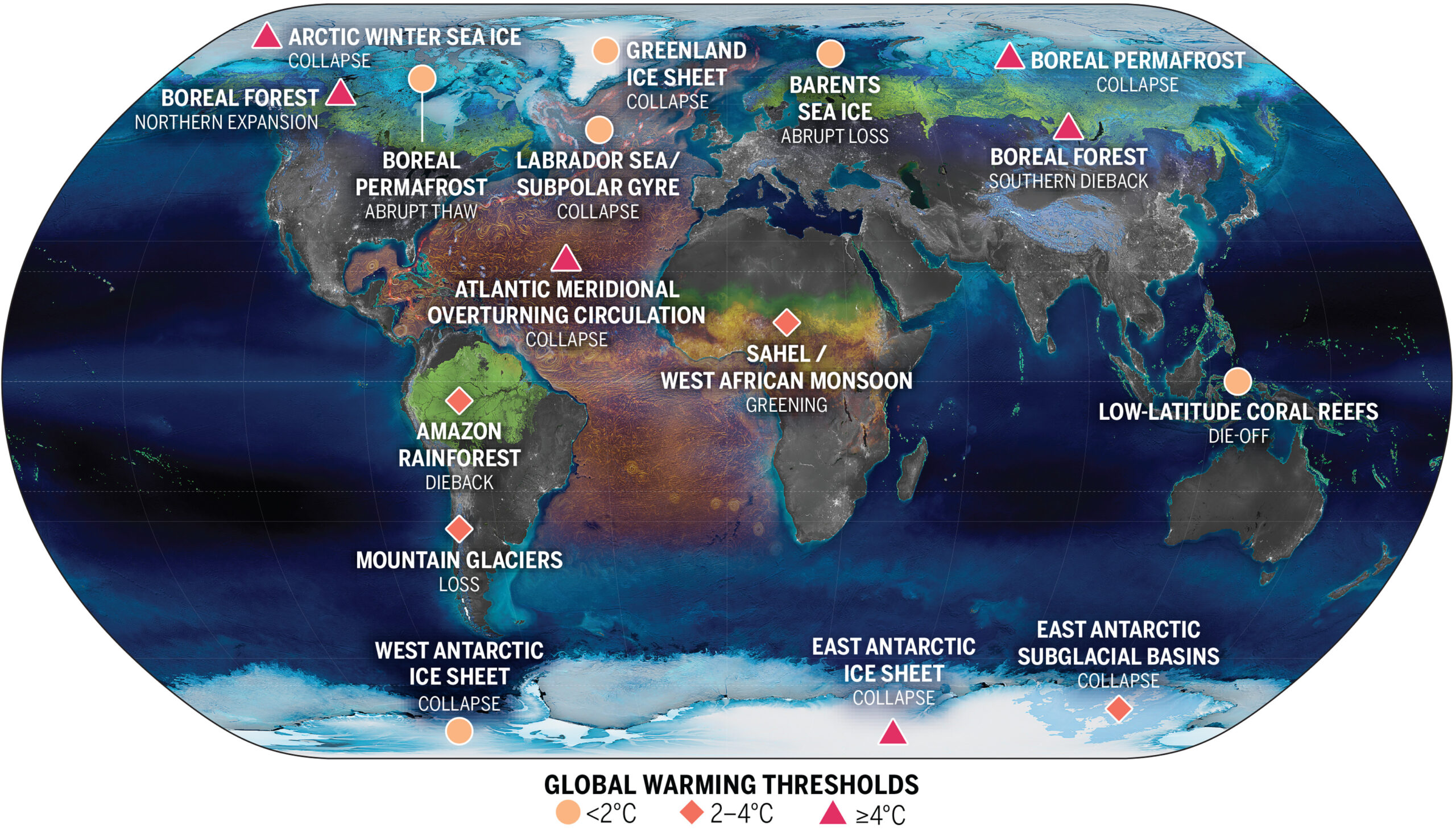The Green Planet Monitor

Tipping Points
The world’s largest source of untapped energy … What comes to mind? Remaining oil/gas reserves? How about clean wind and solar?
In fact, it’s the world’s oceans. Huge volumes of energy are stored in ocean waves, tides and surface heat.
Then there’s salt gradient energy. Wherever fresh river water flows into salty seas, salt ions can be directed across a stack of plastic membranes, generating electricity. Salinity gradient or ‘Blue’ energy, it’s called.
Here’s a story about that. Listen to today’s podcast. Click on the play button above, or go here.

REDstack’s Rick Sieber shows how salinity gradient energy works (David Kattenburg)
Human emission of CO2 and other long-lived greenhouse gases has warmed Earth’s surface temperature by about 1.1 degrees, relative to the 1850-1900 time frame, at a rate of about three tenths of a degree per decade since 1980. That rate is steadily rising.
As Earth’s surface warms, thermal expansion of oceans and melting ice sheets have raised sea levels by two tenths of a meter. That rate is rising too. Slow and steady?
Think again. In a recent report, a team of scientists warn about tipping points — points of inflection where the pace of Earth warming and destruction of Earth’s living fabric become non-linear and irreversible, and where Earth systems start shifting to new, potentially dangerous states.
The report identifies twenty-five tipping points. Five major ones may already have been transgressed. More may soon be tripped. If they are, a cascade of responses would likely reverberate across Earth’s tightly coupled climate system and biosphere. Countless others would race through globalized human economies and societies.
As if all this weren’t scary enough, “there is no adequate global governance at the scale of the threats posed by negative tipping points,” the report’s authors warn. Manjana Milkoreit is one of them. Milkoreit is a postdoctoral researcher at the University of Oslo, and lead author of Chapter Three of the first Global Tipping Points Report.
Listen to our conversation with Manjana Milkoreit in today’s edition of the GPM podcast. Click on the play button above, or go here.
Listen to our complete conversation about the Global Tipping Points report here:

Courtesy McKay et. al., Science Magazine.
Everyone loves a good joke. Here’s one for you:
What’s the difference between the State of Nebraska and the State of Israel? See if you can guess, after listening to the collage of voices in today’s podcast, captured from the proceedings of the Armed Services Committee of the US Senate, back in February 2013.
Barack Obama had tapped Chuck Hagel for the post of Secretary of Defense, a nomination the Committee needed to confirm. Hagel, formerly a Senator for the state of Nebraska, was not popular among Republicans, and they’d come with a shopping list of angry complaints.
Hagel had compared the Iraq war to Vietnam. Israel’s 2006 war on Lebanon, he’d said, was a “sickening slaughter.” In a Senate resolution sanctioning Iran, Hagel had voted no. And, Hagel had refused to sign a letter to the European Union calling on the EU to declare Hezbollah a “terrorist organization.”
Most egregiously, Hagel once told an interviewer “I’m not an Israeli senator. I’m a United States senator.”

Chuck Hagel
The Armed Services Committee ended up approving Hagel’s nomination by a vote of 14–11, short of the two-thirds vote needed to end debate. So, on February 26, 2013, in full session, the US Senate ordered cloture, and then confirmed Hagel’s nomination to America’s top war-fighting post, along partisan lines. Hagel took office on February 27, 2013, and would serve until 2015.
Listen to the audio collage in today’s podcast. Click on the play button above, or go here.
The answer to our joke is at the end.
Thanks to Dan Weisenberger for his brilliant guitar instrumentals.






 Visit Podcast Website
Visit Podcast Website RSS Podcast Feed
RSS Podcast Feed Subscribe
Subscribe
 Add to MyCast
Add to MyCast